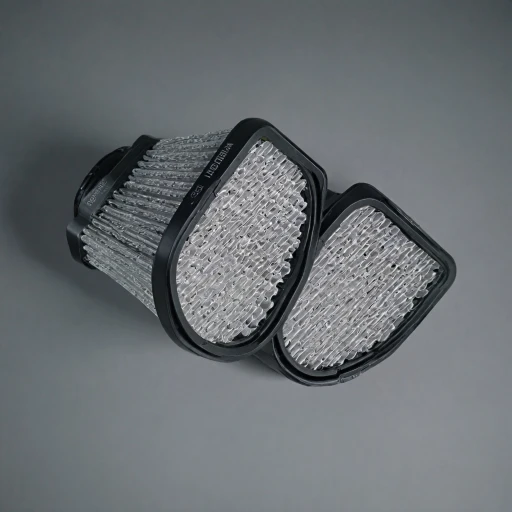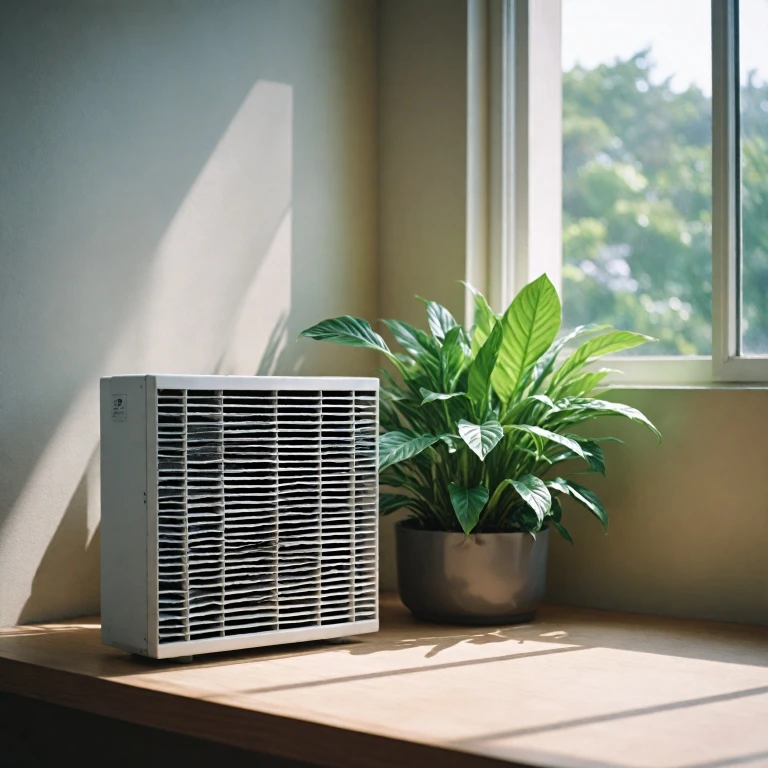What Are Asbestos Air Filters?
Delving into the World of Asbestos Filtration Devices
When exploring the range of air purification options, asbestos air filters might not be the first type that comes to mind. Yet, they play a crucial role in certain air purification systems. Asbestos air filters are uniquely designed to trap microscopic particles, ensuring that indoor air remains as free of contaminants as possible.
These filters specialize in capturing asbestos fibers, which are known for their resilience and microscopic size. Asbestos, a naturally occurring mineral used in a variety of products due to its heat-resistant properties, can pose serious health risks when fibers become airborne. These dangers underscore the importance of having effective air filtration systems in places where asbestos exposure might occur.
While interacting with technologies such as True HEPA filters is common, it's essential to understand that asbestos air filters cater to specific filtration needs. Such filters work to eliminate fibers that could otherwise compromise indoor air quality, reducing the risk of ailments like lung cancer.
Given the potential health implications of asbestos particles, ensuring you have the right filtration method in place can significantly enhance safety. Asbestos air filters are part of a larger global effort in advancing indoor air purifiers, aiming to remove harmful particles more efficiently.
For more insights into innovative air filtration technologies, consider exploring
cutting-edge PCO technology that complements traditional asbestos air filters. This can offer a broader understanding of how indoor environments can be protected through advanced purification methods.
The Importance of Asbestos Air Filters for Indoor Air Quality
Enhancing Indoor Environments with Asbestos Air Filters
Asbestos air filters are pivotal in maintaining healthy indoor air quality. With concerns over allergens, pollutants, and asbestos exposure rising, it is essential for these filters to effectively manage and remove pollutants from the air.
Asbestos fibers, along with other harmful particles like dust and pollen, can significantly affect air quality if not adequately filtered. These microscopic asbestos fibres can weave their way into your respiratory system, potentially leading to serious health issues like lung cancer. The goal of these filters is to capture and remove harmful particles from the air and make it safer to breathe.
A high-quality asbestos air filter often incorporates materials like True HEPA filters, which are known for their advanced filtration capabilities. They can capture up to 99.97% of particles that are as small as 0.3 microns. This precision in filtration not only improves air quality but also drastically reduces the health risks associated with prolonged exposure to asbestos fibers.
It’s essential for households and workplaces to use asbestos air filters as part of a comprehensive air purification strategy. This approach minimizes the risk of exposure to hazardous materials, which can have a long-term impact on health. Regular replacement or maintenance of these air filters ensures that they continue to operate efficiently, providing a consistent line of defense against pollutants.
Choosing the right filter for your environment can also play a critical role. For more integrated air quality solutions, consider exploring the
benefits of a combined dehumidifier and air purifier which can further enhance your indoor air quality.
Whether you are concerned about price, products, or specific filtration needs, understanding the importance of asbestos air filters helps in making informed decisions for healthier living spaces.
How Asbestos Air Filters Work
Mechanism of Action for Asbestos Air Filters
Asbestos air filters operate by utilizing a robust filtration system capable of capturing microscopic particles, especially asbestos fibers, which pose significant health risks such as lung cancer and other respiratory issues. The effectiveness of these filters lies in their multi-layered design.
- Pre-Filtration Stage: The initial stage often includes a pre-filter that captures larger particles such as dust and pet dander before they reach the main filter. This not only prolongs the life of the main filter but also improves efficiency.
- Main Filtration Component: At the core is typically a high-efficiency particulate air (HEPA) filter. True HEPA filters are renowned for their ability to trap small particles, ensuring asbestos fibers are removed from the air to enhance indoor air quality.
- Advanced Filtration Technologies: Some models might incorporate additional filtration methods such as activated carbon to further neutralize unwanted pollutants, odors, and potentially harmful chemicals, making the air purifier an essential tool in maintaining a clean and healthy environment.
Unlike standard air purifiers, those designed to tackle asbestos should be chosen with care, ensuring they meet specific air filtration standards. Consider the specifications and certifications, like the ability to remove particles as small as 0.3 microns, as these are crucial in assessing the filter's capability to remove asbestos effectively.
For those wanting to delve deeper into finding the right option for specific needs, guidance on
finding the ideal air purifier can be invaluable. The market offers a range of products, each varying in price, efficiency, and design. Understanding the intricacies of how these filters work can significantly influence your choice and emphasize the importance of selecting a product that does not compromise on health and safety.
Choosing the Right Asbestos Air Filter for Your Home
Finding the Perfect Fit for Your Space
Choosing the right asbestos air filter for your home is crucial for maintaining optimal indoor air quality and protecting against the hazardous effects of asbestos exposure. To achieve effective air filtration, consider the following factors:
- Filter Type: Air filters come in various types, with HEPA filters being the most effective in capturing fine particles like asbestos fibers. True HEPA filters can remove 99.97% of particles as small as 0.3 microns, making them an ideal choice for safely capturing asbestos.
- Compatibility: Ensure that the filter you choose is compatible with your existing air purifier model. Manufacturers often provide specific guidelines or recommendations for filter types that best suit their products.
- Room Size: The efficiency of an air purifier is often measured by the amount of air it can purify per hour. Match the asbestos air filter to the size of the room to ensure sufficient air purification.
- Pre-Filter: Some models include a pre-filter to capture larger particles like dust and debris, prolonging the life of the main filter and improving overall performance.
- Price Consideration: While pricing ranges vary, it is essential to strike a balance between cost and product efficiency. Look for air purifiers that offer reliable filtration at a regular price, with discounts available during a sale.
Remember, investing in a quality asbestos air filter not only contributes to better health but also ensures protection from the risks of lung cancer associated with prolonged asbestos exposure. Proper air filtration can significantly improve your home's air and contribute to overall well-being.
Maintenance and Care for Asbestos Air Filters
Proper Upkeep for Effective Operation
To ensure asbestos air filters operate at peak efficiency, regular maintenance is crucial. Whether dealing with asbestos, dust, or other airborne particles, routine care helps in preserving both air quality and the longevity of the air purifier. Here are some key aspects to consider:
- Regular Inspection: Consistently check the condition of the filters for any signs of wear or damage. This helps prevent asbestos fibers from becoming loose or escaping into the environment.
- Filter Replacement: Depending on usage and manufacturer guidelines, filters should be replaced regularly to maintain optimal air filtration. HEPA filters, due to their high efficiency, may require changes less frequently than standard filters.
- Cleaning the Unit: Dust and debris can accumulate in and around the purifier. Cleaning the exterior and any pre-filters helps in preventing blockages and improving overall air filtration effectiveness.
- Monitoring Air Quality: Keep an eye on indoor air quality levels to determine the effectiveness of the filter in removing asbestos and other particles. If the air quality does not improve, it might be time to check the filters or the unit's performance.
Regular maintenance not only supports the function of asbestos air filters but also ensures that health risks, like asbestos exposure and potential cancer concerns, are minimized. Investing time in proper care translates into safer indoor air and better health outcomes for those relying on these purifiers.
Health Benefits of Using Asbestos Air Filters
Improving Health and Minimizing Risks
It’s no secret that asbestos fibers, once airborne, can pose significant health risks, including lung cancer and asbestosis. By using air purifiers equipped with true HEPA filters, you can effectively remove particles and improve indoor air quality, thereby reducing the risk of asbestos exposure. HEPA filters are specifically designed to trap microscopic particles like asbestos fibers, making them an essential component in maintaining clean air.
A comprehensive air filtration system with true HEPA filters works to capture both dust and asbestos fibers, which, when left unchecked, can lead to severe health conditions. Regular maintenance and correct usage of these filters ensure they remain effective—keeping harmful particles out and promoting a healthier living environment.
In the global effort to enhance air quality, these filters not only prevent exposure to harmful substances but also contribute to better overall health outcomes. Integrating air purifiers into your home can provide a shield against potential health threats, ensuring long-term benefits. Always consider the regular price and sale price of purifiers to suit your budget, but prioritize health above all.

